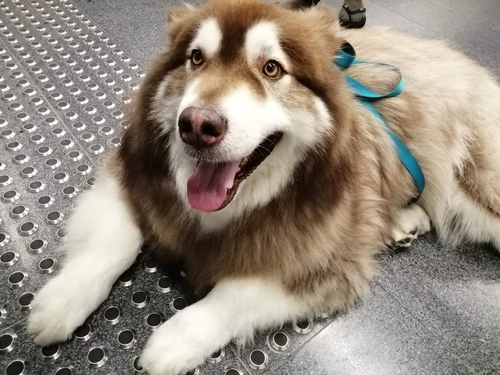Phone A Friend, And Other Lifelines
2020年6月10日

鄧裕美
MBChB Medicine, Year 4For context, here’s an introduction:
I just finished an intercalated MSc in research medicine (i.e.lab research) and will be returning to medical school come July.
For the last few months, my schedule (on weekdays without classes) looked something like this:
11:30 wake up for temperature check, pack and get ready
11:45 eat breakfast (how timely) and leave for the lab, in whatever order
12:45-21:30 (at the earliest) experiment, eat when experiments allow
21:30 or later Go back to Morningside, eat if hungry, study/procrastinate, sleep
This year was the first time I’d attached to a lab long-term (previously, I would be at a lab for one month during summer breaks). With some more experience under my belt, here are some things I’ve learnt, which probably serve as self-reminders more than anything.
Communication
… is really key. Surprise!
It goes without saying that concretely understanding the expectations of you and your work could not be more paramount, as is asking for support when necessary (be it explanations, papers to read, or locations of machines) and figuring out how to best help everyone around you – even just by doing small things (e.g. learning the procedure for accepting deliveries and notifying the recipient, helping people finish experiments if they’re unable to come in that day).
Mistakes happen (regrettably, everyone makes them)
This is a bit hard to remember this when everyone around is very competent and experienced and knowledgeable, but it’s true. Researchers I’ve worked with have been very open about their mistakes, which helped relieve some of my self-imposed pressure. For what it’s worth, here are two major mishaps (amidst a whole array of comparatively minor ones) of mine. Once, I ruined a rare and valuable biological specimen towards the end of a lab attachment. This year, I dropped the lab’s only bottle of a very important chemical (unfortunately, my mistake continues to affect our lab work as of this writing, as the replacement bottle has yet to be delivered). It’s difficult to express how fortunate and grateful I am to have had such patient supervisors in both cases (“extremely” doesn’t suffice, but it is a start). Their kindness is truly inspiring.
Late nights
Sometimes experiments can run for much longer than expected, especially if troubleshooting was necessary to make them work; being stubborn also does not help – as an aside, figuring out when to stop and take a break, or when to return to the drawing board, is a tough but important lesson. Some days, it can be mentally taxing. There were a few things that (personally) helped keep things running:
- Playing a single song, over and over and over again (I’ll just leave two recommendations here: “What’s It Gonna Be” by Shura and “Cold Cold Man” by Saint Motel)
- Listening to Claire or Chris figure something out in Bon Appétit videos
- A snack
- Calling friends. My friends helped so much by letting me talk through a problem (in vague terms to maintain confidentiality), or to rant about why the day has been kind of awful, or asking them how they’ve been… what they’re up to… how they’re feeling. Hearing about their lives is an effective antidote to the tunnel vision I sometimes experience when zeroing in on perfecting an experiment. Being alone, experimenting late at night, felt far less lonely.
Do not underestimate pipetting
It can be more finicky than you think. Beware the viscous liquids.
Ultimately…
Nothing here is revelatory or novel. But in a sense, lab attachments brought to light some personal shortcomings and reinforced lessons that I didn’t realise I needed to revisit. Be kind, considerate, honest, hardworking, curious, and flexible. Qualities that are helpful only up to a point are stubbornness and a commitment to self-reliance. Failure is the mother of success (失敗 は成功の⺟); practice makes perfect. Thank the people who help you. Stay hungry (and remember that a growling stomach is counterproductive – take a break, have a (snack of your choice here)).
Call your friends (especially in light of social distancing).
Oh, and always stop to pet the dogs.

Especially pet Captain!
Stay safe, take care. Apologies for the bad jokes.
